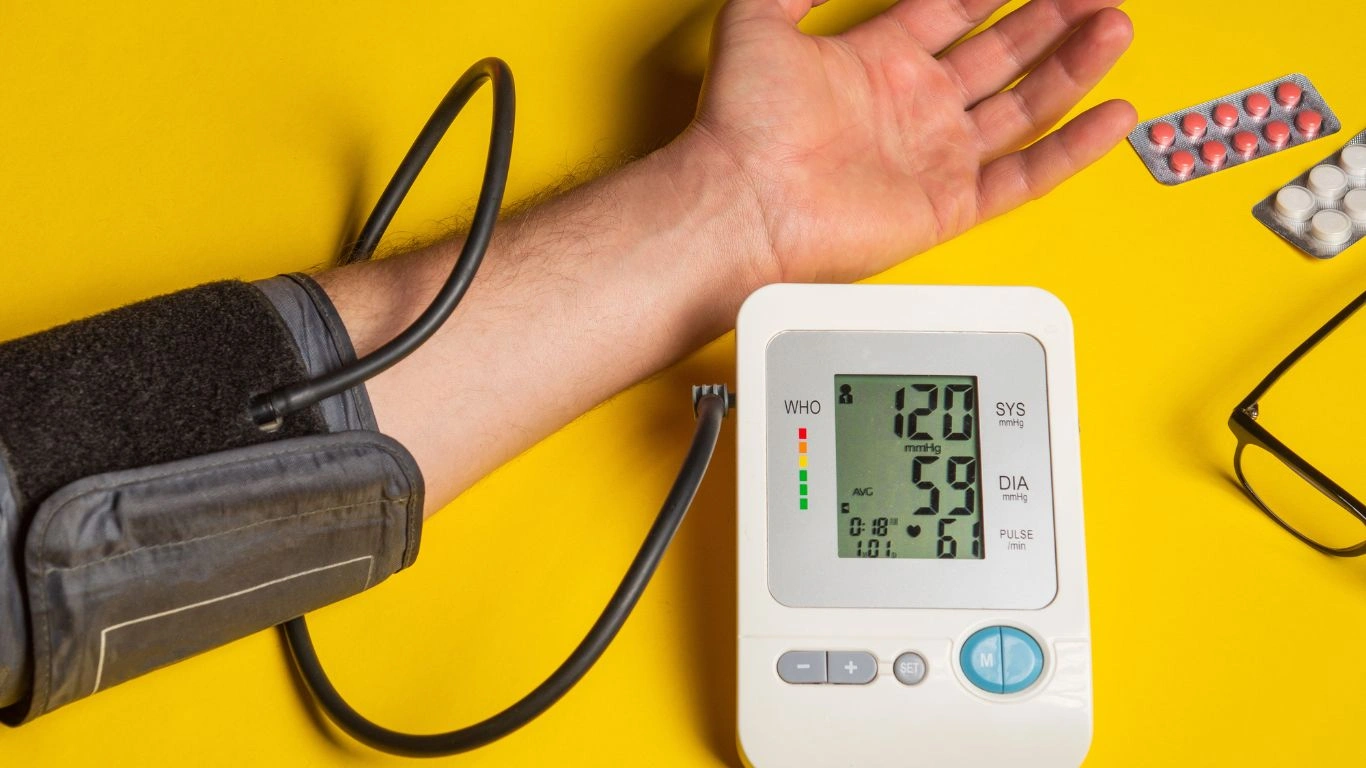Can Cinnamon Help Lower Blood Pressure? Discover Natural Benefits & Facts
As an Internal Medicine physician specializing in hypertension management, I often get asked if simple, natural remedies can help control blood pressure. One such remedy that frequently pops up is cinnamon. Many people love its warm, spicy flavor, but could this common kitchen staple actually help lower blood pressure? In this article, we’ll dive into whether cinnamon has any proven benefits for hypertension, backed by science and my personal clinical experience.
The Potential of Cinnamon in Hypertension Management

Hypertension, or high blood pressure, is one of the leading causes of heart disease and stroke. It’s a condition that affects millions of people worldwide, and as a doctor, I see the impact it has on daily life. Managing high blood pressure often involves lifestyle changes, such as exercise, diet, and, of course, medication. But there’s also growing interest in natural remedies that might support traditional treatments. One of the most common questions I hear is: can cinnamon help lower blood pressure?
Cinnamon is well-known for its health benefits. It’s packed with antioxidants and has anti-inflammatory properties. But what about its effects on blood pressure? Is there any scientific evidence to support its role in managing hypertension? Let’s explore that.
What the Research Says: Is Cinnamon Effective in Lowering Blood Pressure?
First off, let’s talk about the science behind cinnamon and its potential effects on blood pressure. A number of studies have investigated cinnamon’s ability to lower blood pressure, and while the results are promising, they’re not always conclusive.
- One study published in the Journal of Clinical Nutrition found that consuming cinnamon helped reduce both systolic and diastolic blood pressure in people with type 2 diabetes. The results were modest, but they suggested that cinnamon could have a positive impact on blood pressure levels.
- Another study in the Journal of Hypertension reviewed the effects of cinnamon supplementation on blood pressure. This study indicated that taking cinnamon for 12 weeks significantly reduced systolic and diastolic blood pressure in participants with high blood pressure.
- However, not all studies have shown significant effects. Some research found no substantial change in blood pressure levels after cinnamon consumption, especially when the intake was limited or the quality of cinnamon used wasn’t high enough.
So, what does this mean for you? The evidence suggests that cinnamon could be a helpful addition to your diet if you’re looking to manage hypertension, but it’s unlikely to be a magic bullet on its own. It’s always best to combine natural remedies with lifestyle changes and medications as prescribed by your doctor.
The Active Compounds in Cinnamon That May Help Lower Blood Pressure

What’s so special about cinnamon? The secret lies in its active compounds. Specifically, cinnamon contains a compound called cinnamaldehyde, which is believed to be responsible for many of its health benefits, including its potential effect on blood pressure.
Cinnamaldehyde has anti-inflammatory and antioxidant properties, which can help reduce the inflammation and oxidative stress that contribute to high blood pressure. Additionally, cinnamon may help improve endothelial function, which is essential for regulating blood flow and preventing arteries from stiffening—both of which play a role in high blood pressure.
But cinnamon doesn’t work in isolation. To get the full benefit, it’s important to maintain a healthy diet, exercise regularly, and manage stress. Adding cinnamon to your daily routine might give you that extra push toward better blood pressure control.
How to Incorporate Cinnamon into Your Diet

If you’re thinking about adding cinnamon to your routine, you’ll be happy to know it’s pretty easy to do. It’s incredibly versatile, so you can enjoy it in many forms without having to drastically change your diet.
- Add it to your morning coffee or tea: A sprinkle of cinnamon in your morning cup can kickstart your day while potentially helping lower your blood pressure.
- Mix it into smoothies: Cinnamon pairs wonderfully with fruits like bananas and berries, adding both flavor and health benefits.
- Stir it into oatmeal: Cinnamon and oats are a classic combination. It’s a great way to get a dose of fiber along with your cinnamon fix.
- Use it in baking: Cinnamon is a natural flavor booster. Try adding it to whole grain muffins or bread for a healthier treat.
- Sprinkle it on roasted vegetables: Cinnamon isn’t just for sweet dishes. Try sprinkling it on roasted sweet potatoes or carrots for a unique twist.
While adding cinnamon to your meals can help, it’s important to remember that it should be just one part of a holistic approach to managing hypertension. It won’t replace medications or other necessary lifestyle changes, but it can certainly complement them.
What Kind of Cinnamon Should You Use?
Not all cinnamon is created equal, and the type you choose can make a difference. There are two primary types of cinnamon: Cassia cinnamon and Ceylon cinnamon. Ceylon cinnamon, often referred to as “true cinnamon,” contains much lower levels of coumarin, a compound that can be harmful in large quantities. If you plan to use cinnamon regularly, Ceylon cinnamon is the safer option.
While Cassia cinnamon is more common and widely available, it contains higher amounts of coumarin, which may pose health risks if consumed in large quantities over time. If you’re using cinnamon frequently, it’s a good idea to choose the Ceylon variety to avoid potential negative effects.
Final Thoughts
So, can cinnamon help lower blood pressure? The answer is: it’s possible, but it’s not a guaranteed cure. Cinnamon can be a helpful part of a broader strategy to manage hypertension, but it’s not a substitute for medication, exercise, or other doctor-recommended treatments. If you’re considering incorporating more cinnamon into your diet, make sure to do so as part of a balanced approach to health. And as always, check with your healthcare provider before making any major changes to your routine, especially if you have preexisting health conditions.
Can Cinnamon be Used as a Complementary Treatment for High Blood Pressure?

When it comes to managing high blood pressure, most of us immediately think of medication, diet, and exercise. But what if cinnamon could play a role in lowering blood pressure as a complementary treatment? As someone who specializes in hypertension management, I’m always on the lookout for evidence-based, natural options that could give my patients an extra edge in their treatment plans. While cinnamon isn’t going to replace prescribed medication, it may offer some valuable support, especially when used alongside lifestyle changes.
As we explored earlier, studies have suggested that cinnamon may have modest effects on reducing blood pressure, particularly in individuals with type 2 diabetes. But is it really effective for everyone? And how should it be used alongside other treatments? Let’s dig deeper into how cinnamon might work in conjunction with traditional approaches to blood pressure management.
Combining Cinnamon with Conventional Hypertension Treatments
If you’re currently on medication to manage your hypertension, adding cinnamon to your routine might provide some additional benefits. While there’s no magic solution, the idea is to incorporate cinnamon in a way that supports your overall health goals. From my experience, I’ve seen that patients who approach blood pressure management holistically tend to do better over time. That means combining a healthy diet, regular physical activity, stress management, and perhaps a sprinkle of cinnamon to keep things balanced.
Some of the medications prescribed for hypertension, such as ACE inhibitors or calcium channel blockers, help relax the blood vessels, improve blood flow, and reduce the heart’s workload. While cinnamon isn’t a replacement for these medications, it could potentially have a complementary effect by improving endothelial function and reducing inflammation. In other words, cinnamon may help keep your blood vessels flexible and support the health of your arteries, which is crucial in maintaining healthy blood pressure.
However, it’s crucial that you don’t try to replace your prescribed medications with cinnamon alone. Cinnamon should be seen as an addition to your treatment plan, not a replacement. Always consult your healthcare provider before introducing any new supplement or natural remedy into your routine. Your doctor can help determine if cinnamon is appropriate for your specific case and advise you on the right amount to consume.
What’s the Right Dosage of Cinnamon for Blood Pressure Control?

One of the biggest questions people have is how much cinnamon they should consume to potentially benefit from its effects on blood pressure. Like with most natural remedies, the optimal dosage varies from person to person. However, based on research and personal experience, I’ve found that taking about 1 to 2 teaspoons (2-4 grams) of cinnamon daily is generally considered safe and effective for most people.
If you’re using cinnamon to support blood pressure control, it’s best to start slowly. Begin with a small amount—maybe half a teaspoon—and monitor your response. Cinnamon is generally safe for most people when consumed in moderate amounts, but it’s always important to be mindful of any allergic reactions or digestive issues. Some people may be more sensitive to cinnamon and could experience stomach irritation if they consume it in larger amounts.
Remember, it’s always a good idea to consult your healthcare provider before increasing the amount of cinnamon you’re using, especially if you have any pre-existing conditions, like liver disease, or are pregnant. Cinnamon, particularly the Cassia variety, can interact with certain medications and affect liver function, so it’s crucial to ensure that it won’t interfere with any of your treatments.
Other Ways Cinnamon May Support Heart Health
Beyond blood pressure control, cinnamon has a range of other benefits that could contribute to overall heart health. Over the years, I’ve seen firsthand how small lifestyle changes can have a significant impact on patients with cardiovascular concerns. Adding cinnamon to your diet might help more than just your blood pressure. It could also aid in cholesterol management, blood sugar control, and even weight management—factors that all influence heart health.
- Improved Cholesterol Levels: Cinnamon has been shown to help reduce total cholesterol and LDL (“bad”) cholesterol levels while potentially raising HDL (“good”) cholesterol. Keeping cholesterol levels in check is crucial for preventing plaque buildup in the arteries, which can lead to hypertension and other cardiovascular issues.
- Blood Sugar Regulation: For people with diabetes or insulin resistance, cinnamon has demonstrated the ability to improve insulin sensitivity and lower blood sugar levels. This is important because high blood sugar can exacerbate hypertension over time.
- Weight Management: Maintaining a healthy weight is another important factor in controlling high blood pressure. Some studies suggest that cinnamon might help regulate metabolism and reduce fat storage, which can support healthy weight management.
All of these factors—cholesterol, blood sugar, and weight—are interconnected when it comes to heart health. By addressing them together, cinnamon could play a supporting role in overall cardiovascular wellness. However, it’s important to view cinnamon as just one piece of the puzzle. Diet, exercise, and proper medication remain the cornerstones of effective hypertension management.
How to Choose the Best Cinnamon for Your Health

Not all cinnamon is created equal. If you’re planning to use cinnamon regularly for its health benefits, it’s important to choose the right kind. There are two main types of cinnamon: Cassia cinnamon and Ceylon cinnamon, and they differ in both flavor and health benefits.
Ceylon cinnamon (often referred to as “true cinnamon”) is the better option if you plan on consuming it frequently. It contains significantly lower levels of coumarin, a compound that, in large quantities, can be harmful to the liver. While Cassia cinnamon is more readily available and less expensive, it’s better to use Ceylon cinnamon if you’re looking to get the most out of cinnamon’s health benefits without worrying about potential risks associated with coumarin.
Ceylon cinnamon also tends to have a milder, sweeter flavor compared to the bolder, spicier taste of Cassia cinnamon. This can make it more versatile for a variety of recipes, whether you’re sprinkling it on your morning oatmeal, blending it into smoothies, or stirring it into your tea.
Is Cinnamon a Quick Fix for Hypertension?
While the idea of using cinnamon to lower blood pressure sounds appealing, it’s important to keep expectations realistic. Cinnamon, like any natural remedy, isn’t a quick fix or a standalone solution. The effects of cinnamon on blood pressure tend to be modest and may take time to notice. It’s not going to replace the need for prescription medications or the lifestyle changes that I recommend to my patients, such as a low-sodium diet, regular exercise, and stress reduction techniques.
What I’ve found through years of practice is that small, consistent changes can add up over time. If you enjoy cinnamon, adding it to your daily routine can be one of those small changes that, over the long run, might help contribute to better blood pressure control and overall heart health. As always, remember to talk to your healthcare provider before starting any new supplement or significant dietary change.
Potential Side Effects and Risks of Cinnamon for Hypertension

As much as cinnamon may offer potential benefits for lowering blood pressure, it’s important to keep in mind that like any supplement or dietary change, there are potential side effects and risks to consider. As a healthcare provider, I always stress the importance of balancing natural remedies with a holistic approach to health. In my practice, I’ve seen how even the most innocent-sounding foods or herbs can cause issues when not used appropriately.
For most people, cinnamon is generally safe when consumed in moderation, but if you have certain health conditions or are taking specific medications, you need to be cautious. Let’s take a look at some of the possible side effects and risks associated with cinnamon, especially when used for hypertension management.
Potential Risks of Cassia Cinnamon
As we discussed earlier, there are two types of cinnamon: Cassia and Ceylon. The majority of cinnamon found in grocery stores is Cassia cinnamon, which is often cheaper but contains higher levels of coumarin—a compound that can be harmful in large quantities. High amounts of coumarin can put stress on the liver and kidneys and, in extreme cases, could potentially lead to liver damage.
If you’re planning to use cinnamon regularly for blood pressure control, it’s crucial to avoid excessive amounts of Cassia cinnamon. In general, the amount of cinnamon that would be considered toxic is much higher than what most people would consume, but it’s always wise to err on the side of caution.
If you have liver problems, it’s a good idea to stick to Ceylon cinnamon, which contains much lower amounts of coumarin. And as I always tell my patients, moderation is key. Even with Ceylon cinnamon, consuming too much over time can lead to potential risks.
Interactions with Medications
Cinnamon has the potential to interact with several types of medications, particularly those used for managing blood sugar and blood pressure. If you’re taking medications for high blood pressure or diabetes, it’s essential to talk to your healthcare provider before introducing cinnamon into your daily routine. While cinnamon may help lower blood sugar and blood pressure, there’s a chance it could enhance the effects of your medications, leading to blood pressure or blood sugar levels that are too low.
For instance, if you’re on blood pressure medications like ACE inhibitors or diuretics, adding cinnamon could potentially enhance the effect of these drugs. While this might seem like a positive outcome, it’s critical to monitor your levels closely to avoid hypotension (low blood pressure), which could cause dizziness, fatigue, or fainting.
Similarly, cinnamon may interact with medications such as blood thinners, which could increase the risk of bleeding. Always consult your healthcare provider before making any significant dietary changes if you’re on medication. It’s essential to ensure that any new addition to your diet won’t interfere with your treatment plan or cause unwanted side effects.
How to Use Cinnamon Safely for Blood Pressure Management

When used appropriately, cinnamon can be a beneficial addition to your routine, especially as a natural aid in managing hypertension. But like any supplement, it’s essential to use cinnamon in a way that complements your overall health strategy rather than relying on it solely. Here are a few tips on how to use cinnamon safely to support blood pressure management:
- Choose the Right Cinnamon: As we mentioned earlier, opt for Ceylon cinnamon over Cassia to minimize the risks associated with coumarin. Ceylon cinnamon is more expensive, but it’s definitely worth the investment if you’re planning to use it regularly.
- Stick to Recommended Dosages: Generally, 1-2 teaspoons (2-4 grams) of cinnamon per day is considered safe for most people. Start small and monitor your response. If you notice any adverse effects, reduce the amount or discontinue use and consult your doctor.
- Incorporate Cinnamon into a Balanced Diet: While cinnamon can be a valuable tool in managing blood pressure, it’s important not to rely solely on it. Combine it with a diet rich in fruits, vegetables, whole grains, and lean proteins to support overall cardiovascular health.
- Monitor Blood Pressure Regularly: If you’re using cinnamon to help lower your blood pressure, keep track of your blood pressure regularly to ensure it’s not dropping too low. This is particularly important if you’re also taking blood pressure medication.
- Consult Your Healthcare Provider: Before making cinnamon a regular part of your health routine, always consult with your doctor, especially if you have underlying conditions or take prescription medications. They can help you determine if cinnamon is a safe addition for you and how much you should consume.
Can Cinnamon Replace Prescription Medications?
Cinnamon may offer some benefits in controlling blood pressure, but it’s important to be clear: it’s not a replacement for prescribed medications. In my experience, patients who attempt to rely solely on natural remedies often miss out on the full benefits of a comprehensive treatment plan. High blood pressure can be a serious condition that requires a multifaceted approach, including medication, lifestyle changes, and regular monitoring.
While cinnamon might provide a small boost to your blood pressure management efforts, it should always be viewed as a complementary tool, not a cure. It’s essential to follow your doctor’s advice regarding your prescribed treatments and incorporate natural remedies like cinnamon only as a supplement to those therapies. Managing blood pressure requires a long-term commitment to healthy habits, and cinnamon should just be one part of that strategy.
References
Disclaimer
The information provided in this article is for educational purposes only and is not intended as medical advice. Always consult with your healthcare provider before making changes to your diet or treatment plan. Cinnamon, while beneficial in some cases, should not replace professional medical treatment for hypertension or any other condition. Your healthcare provider can help determine the most appropriate treatment for your individual needs.

Dr. Gwenna Aazee is a board-certified Internal Medicine Physician with a special focus on hypertension management, chronic disease prevention, and patient education. With years of experience in both clinical practice and medical writing, she’s passionate about turning evidence-based medicine into accessible, actionable advice. Through her work at Healthusias.com, Dr. Aazee empowers readers to take charge of their health with confidence and clarity. Off the clock, she enjoys deep dives into nutrition research, long walks with her rescue pup, and simplifying medical jargon one article at a time.







